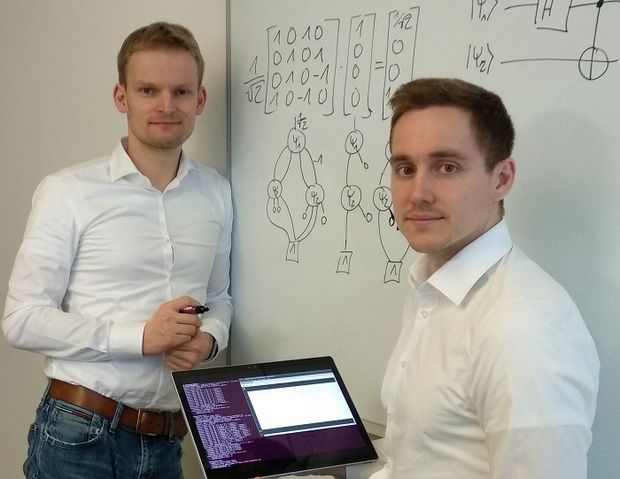How can you test non-existent technology? JKU researchers have developed a simulation to test non-existent quantum computers.

The team was presented with a “Google Award” endowed with € 50,000 in prize money.
Quantum computers are the ‘Holy Grail’ of hardware research and scientists around the globe are working feverishly to create one. Although physics is just at the beginning of this new technology, scientists at the JKU’s Institute for Integrated Circuits are preparing for the future today by developing a new simulation. Univ. Prof. Robert Wille explained, “This is a challenging for computer science because how do you develop an algorithm and a program for a machine that doesn’t exist today but will dominate in the future?”
The core idea is relatively simple: Like other physical phenomena, quantum operations can be described by using mathematical formulas. However, the size of the description soon becomes a problem as even the smallest quantum systems containing a few so-called quantum bits (also called qubits) can already exceed the memory consumption of today’s high-end computers. Prof. Wille’s team is taking a different approach: Instead of storing all of the descriptions exactly, the redundant ones are utilized.
Reducing Information without Misrepresentation
This means omitting part of the information but without misrepresenting the meaning. As these types of redundancies are difficult to find, this is where clever data structures and a special algorithm developed at the JKU are applied. In many cases, these allow billions of descriptions to be compactly reduced to a few hundred formulas and calculated efficiently on conventional computers.
To take advantage of the full potential of a quantum computer, the physical realization is still needed. But until the technology is ready, users can already be ‘fooled into’ using a quantum computer applying advanced methods developed at the JKU.
The methods not only help to test new research applications, students can also use them in class and learn how to work with computers of tomorrow. Even the ‘big players’ are impressed and Google USA presented JKU researchers with a research award for their quantum computer simulator.








